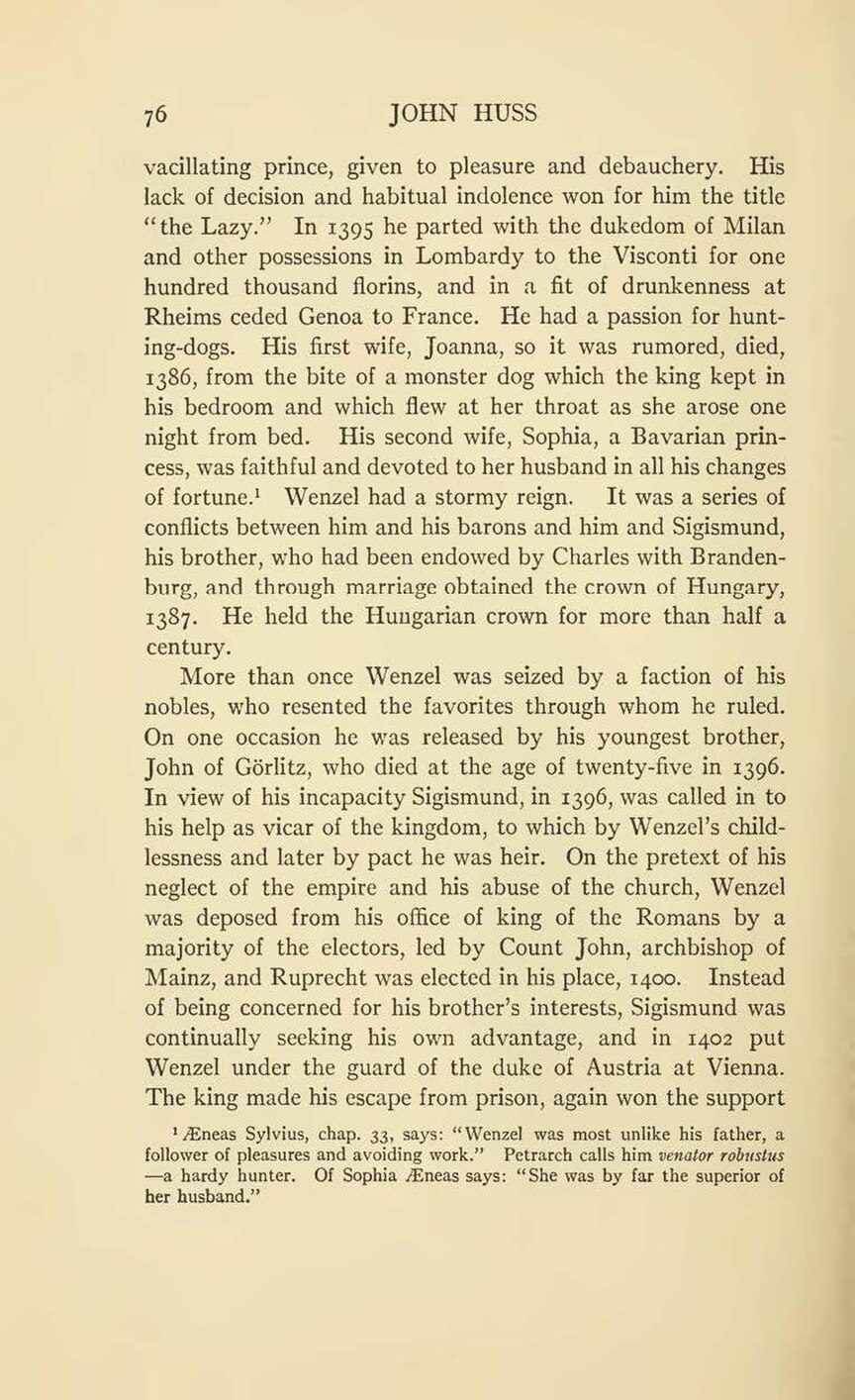vacillating prince, given to pleasure and debauchery. His lack of decision and habitual indolence won for him the title “the Lazy.” In 1395 he parted with the dukedom of Milan and other possessions in Lombardy to the Visconti for one hundred thousand florins, and in a fit of drunkenness at Rheims ceded Genoa to France. He had a passion for hunting-dogs. His first wife, Joanna, so it was rumored, died, 1386, from the bite of a monster dog which the king kept in his bedroom and which flew at her throat as she arose one night from bed. His second wife, Sophia, a Bavarian princess, was faithful and devoted to her husband in all his changes of fortune.[1] Wenzel had a stormy reign. It was a series of conflicts between him and his barons and him and Sigismund, his brother, who had been endowed by Charles with Brandenburg, and through marriage obtained the crown of Hungary, 1387. He held the Hungarian crown for more than half a century.
More than once Wenzel was seized by a faction of his nobles, who resented the favorites through whom he ruled. On one occasion he was released by his youngest brother, John of Görlitz, who died at the age of twenty-five in 1396. In view of his incapacity Sigismund, in 1396, was called in to his help as vicar of the kingdom, to which by Wenzel’s childlessness and later by pact he was heir. On the pretext of his neglect of the empire and his abuse of the church, Wenzel was deposed from his office of king of the Romans by a majority of the electors, led by Count John, archbishop of Mainz, and Ruprecht was elected in his place, 1400. Instead of being concerned for his brother’s interests, Sigismund was continually seeking his own advantage, and in 1402 put Wenzel under the guard of the duke of Austria at Vienna. The king made his escape from prison, again won the support
